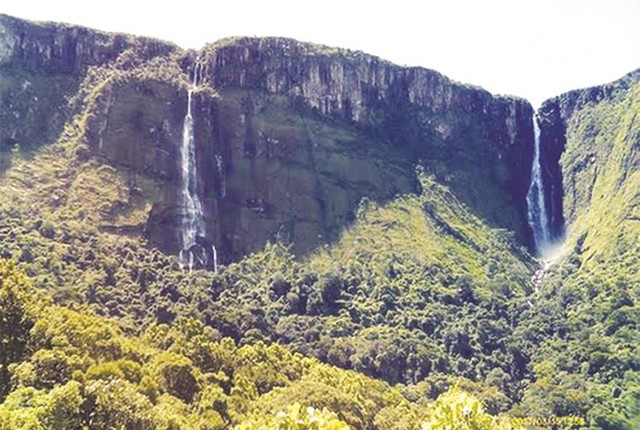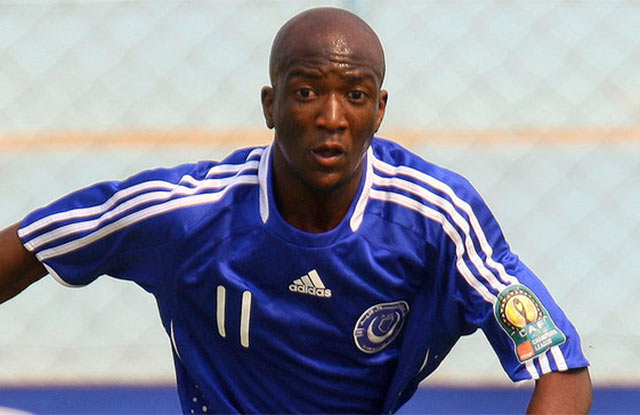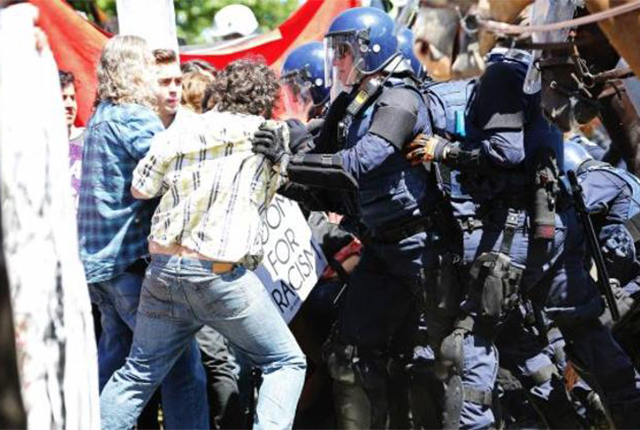Ululating for muroora in the Honde Valley

Sekai Nzenza on Wednesday
IT is 11.05pm on Saturday night last week. We are all gathered in a big round hut in the Honde Valley. Except for two bright cellphone lights, it’s very dark. But we can see each other very well in the dim light. On the right side and sitting on the bench are the men. Among them, my two nephews – Kuda and Marshal.On the left side, there is a row of women sitting with legs stretched towards the fireplace. Right at the front of the kitchen hut is Tete, the aunt. She is chairing the meeting, sitting on the floor, close to her two “young husbands” – Marshal and Kuda. Behind Tete, are three young girls, sisters to Mai Rufaro, Marshal’s wife. Two of the girls are already married and the one called Lucy is still unmarried.
Tete is an imposing figure, wearing an African print dress of subtle gold and green and a head scarf. She is a widow with four adult children, two of them in the UK and one is here with us today, helping in the ceremonies because she is a “daughter” to our daughter-in-law, or muroora wedu, Mai Rufaro.
We are here to assist Marshal in completing another stage in marrying Clammy. But we do not call her Clammy. She is Mai Rufaro. Two years ago, we were here to this scenic Honde Valley, opposite Mtarazi Falls. We came with Marshal’s biological mother and another cousin, Mai Kilda, to present Rufaro and also to share our grief over the death of Mufaro, Rufaro’s twin. She had died suddenly at five months. Maybe it was cot death.
We do not know why the Devil or perhaps the witches, chose to simply take her at dawn, just when Mai Rufaro was about to wake her for a feed. But life can give such surprises to us. Rufaro survived. She is a charming, beautiful and healthy child. People say she took all the power from Mufaro because it was Rufaro and not Mufaro who was chosen by God and the ancestors to live.
We still call Mai Rufaro, Mai Two, meaning, the mother of twins, even though one is already gone. But we say two, because we want to cheat the Devil or the witch to believe there are still two children. But we also do not want to forget about Mufaro.
Today, we are sitting in Mai Clammy or Mbuya SaMarowa’s kitchen hut. Mbuya is sitting next to me and our shoulders, hips and feet touch. We are the mothers of the bride and groom. On her left side is my cousin Piri who has just stopped drinking beer because I said in this hut, we are the mothers of our two sons. Appearance is everything.
On the drive down here, we stopped Piri from drinking any more beer after the Nyanga turn-off, saying, it would be very difficult to stop the car for a toilet break when driving along the winding scenic road that goes down to the valley. Besides, where would you get a toilet among the wattle trees?
Piri agreed reluctantly and said we should not have given her the three beers in the first place, because now she was suffering from a withdrawal headache and Mai Rufaro must stop at the shops and get her tablets to relieve her pain. But I said no, we must proceed with our journey and get to the valley before 8pm.
Mai Rufaro had earlier on mentioned that evenings are the best time to arrive for a private ceremony so we do not want to attract attention from the neighbours. This practice of privacy among VaManyika is very different from us VaZezuru in Hwedza.
Back in our village, we actually want to arrive before sunset, stopping at the local shops and then driving slowly past the community borehole so everyone can see that we have arrived and tomorrow there will be a ceremony. The following day, people then start arriving just after sunrise, expecting sweet tea, bread with plenty of margarine and jam.
Tete sits there, like a queen, waiting to be formally addressed. Babamunini Shumba, husband to Mai Rufaro’s sister, kneels down in front of Tete, claps hands and says he has been appointed by his Soko brothers-in-law, vakuwasha, to inform the Chihwa people that they are here to fulfil another stage of the marriage ceremony. This time, it is to present clothing to the parents of their wife.
Tete refers to Mai Rufaro’s young sisters sitting behind her and asks if that was the case. They say, “Ndizvozvo Tete”. She then asks the men and they reply, “Tiri kuzvinzwa Mhaiyo.” Tete goes on to address everyone until the message gets to Mbuya SaMarowa and she answers the same, we are listening.
When it gets to me, I respond by formally stating that I am here with my sons and my daughter-in-law, to firstly thank them for our relationship, hukama hwedu and to present the clothing as already stated by Shumba. There is clapping of hands and other small formalities regarding money placed into a plate, to allow the beginning of the clothing presentation.
Mai Rufaro kneels down and opens one suitcase. She presents a grey suit, white shirt, tie, shoes, socks, hat with a feather and a walking stick to Tete. Tete follows the same circle of people, asking if they have seen the clothes. They all answer, one by one, “Tiri kuzvinzwa Mhaiyo.”
The next stage is the offering of clothes to Mbuya SaMarowa, mother of the bride. Mai Rufaro presents the clothes to Tete. It’s a red jacket with silver shining buttons and a black skirt and high-heeled black shoes. The hat looks very much like the ones I have seen at European society type weddings. It’s a black hat with lace and golden shiny buttons lined at the front and a long black ribbon tied at the back of the hat.
Mbuya SaMarowa is also presented with a big blanket, a shawl, a brand new hoe for digging and weeding in her fields and a small bucket with a lid for carrying her mahewu or non-alcoholic drinks. There is much clapping and ululating.
Tete then asks everyone to keep quiet and begins a speech to her niece, Mai Rufaro. “Wakateerera zvandakakutaurira. Nhasi wandifadza. Usandinyadzise kuvarume vako nevana mai vako.” You listened to my advice. Today you have made us happy. Keep up the good behaviour and treat your husband’s people well.
Tete then turns to the youngest sister, Lucy. She tells Lucy to follow the footsteps of her big sisters. She must stay faithful, work hard at school and wait to find the right man.
The cousin to Mai Rufaro’s father, Sekuru, then stands up to thank specifically Mbuya SaMarowa. He says, “Wakasara nevana vako murume afa. Ukaita murume pachako. Wakakwira paumba ukapfirira, hauna kutsvaga murume kuti apfeke hovhorosi akupfiririre. Kwete. Wakaita wega.”
Sekuru says SaMarowa did not need a man to complete manly tasks like thatching a hut, after her husband died. She did it all by herself.
It is now our turn to speak as mothers. I let Piri speak. She stands up singing, “Ndiyani waronga izvi, ndiMwari wakanaka!” Who planned all this? It is all planned by God. Piri says our family is blessed with a wife who has come from a good family.
After the speeches, Shumba kneels down again in front of Tete and says: “My brothers now seek permission to go ahead and marry in church.”
The granting of permission to marry in the Anglican Church back in Harare was the main reason for our coming to fulfil one of the stages of the traditional ceremony.
As staunch Anglicans of the Church of England, Marshal and Mai Rufaro are not allowed to receive Holy Communion until they have been officially married by the pastor in front of the congregation. They will receive Holy Communion on the day they get married. After the wedding, Mai Rufaro will be allowed to wear the Anglican married woman’s uniform.
Just after midnight, we complete the ceremony with prayer, much joy and singing. Then drinks start flowing and Piri grabs a beer while some of us opt for tea with fresh buns from Harare.
In the morning we are presented with a live goat which is immediately slaughtered. Within three hours, we are busy feasting on its intestines, zvinyenze
Before departure, Tete summons us into the main house. Together with Mbuya SaMarowa, they give us home-grown produce. Takarongedzerwa zvakare. We are offered big baskets of bananas still on branches, ripe yellow cucumbers, avocadoes, sweet potatoes, sugar cane and two live chickens. We gladly thank our in-laws and carry our gifts home while inwardly celebrating the gift of a daughter-in-law, muroora wedu, from the Honde Valley. In December, we shall allow the church to offer our muroora Holy Communion, because her people are happy with us.
Last Saturday, we fulfilled a traditional obligation after midnight in the Honde Valley.
Dr Sekai Nzenza is a writer and cultural critic.










Comments